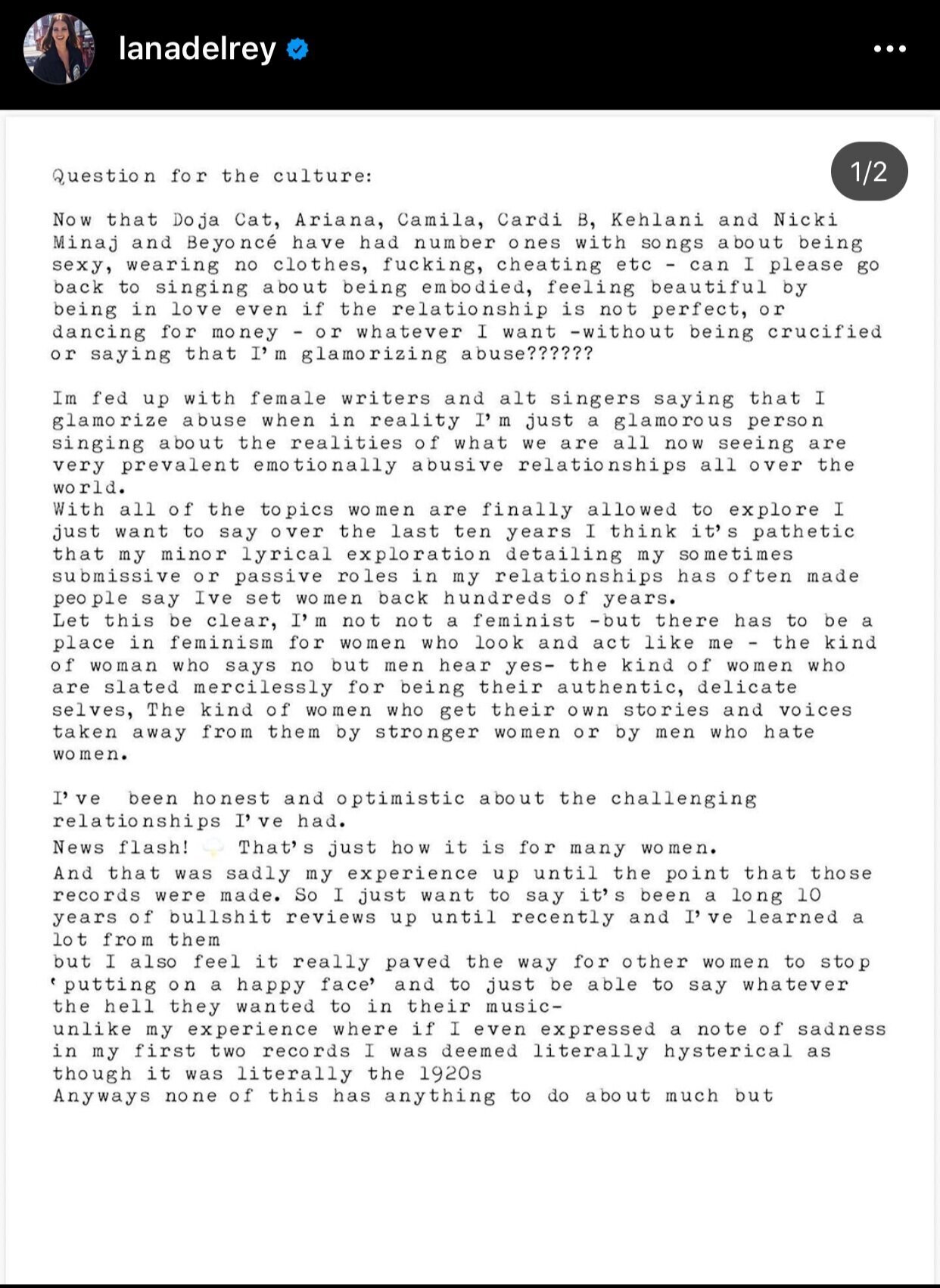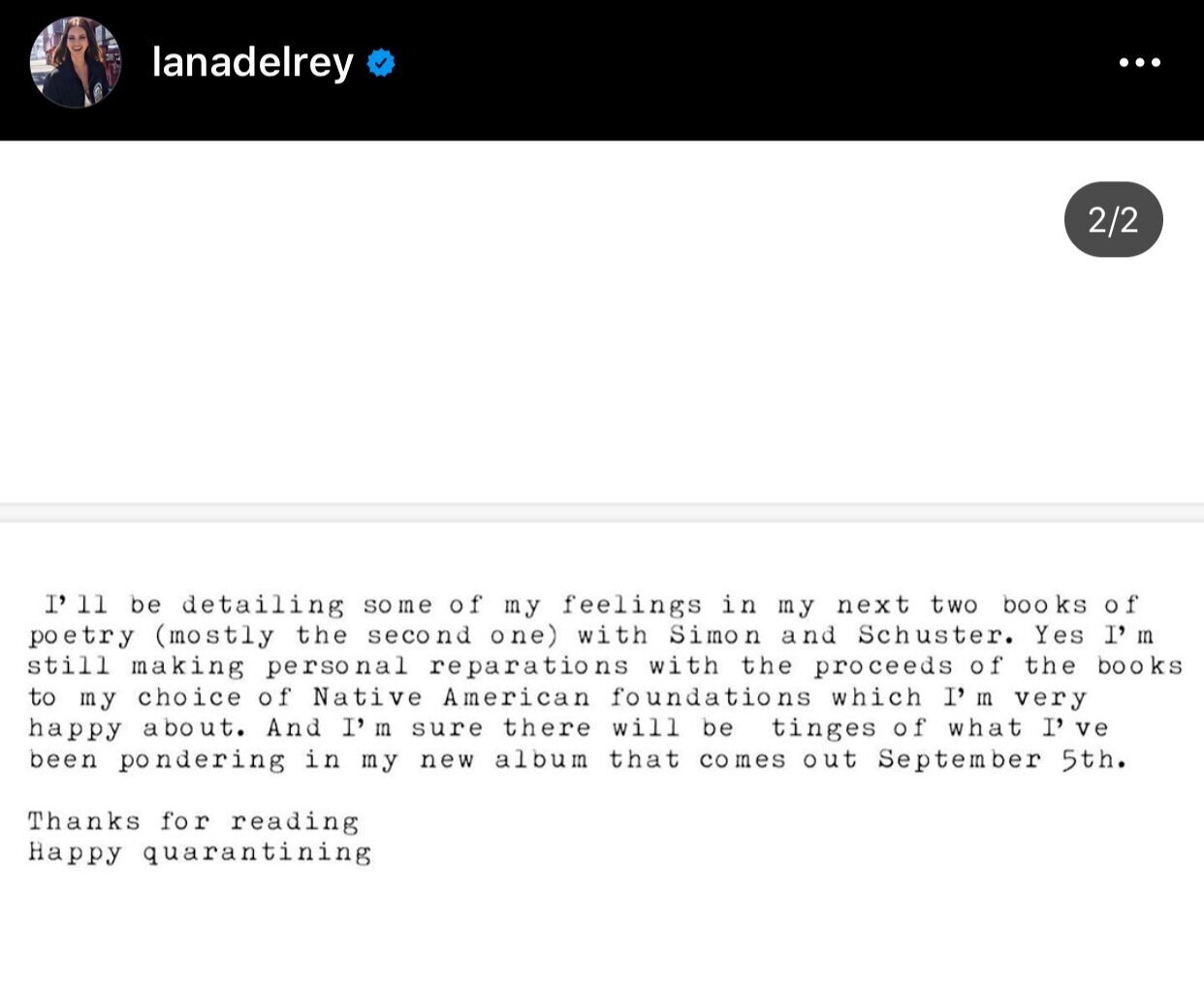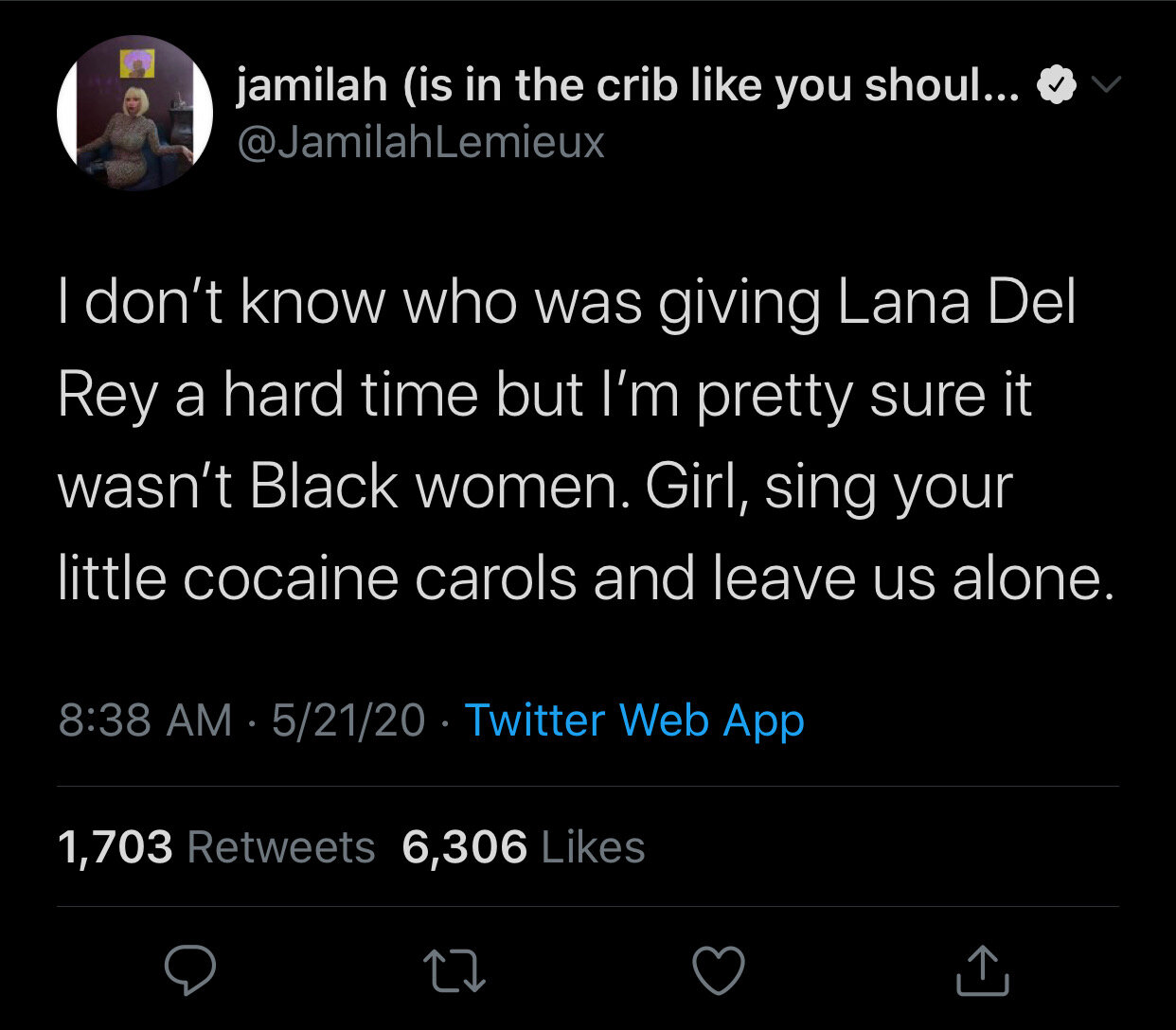Lana Questions Culture & Culture Questions Lana
Anyone who follows Lana Del Rey on Instagram saw her out-of-character post from last week that featured three photos of lengthy paragraphs titled an ‘A Question for Culture.’ Lana decided to bring attention to the purpose of her music and comment on the slander she gets from others in the industry. Everyone deserves a chance to explain their music, but the post led many to note that such an explanation must be handled in a respectful manner.
Lana’s music is often described as glorifying abuse, whether it be through the discussion of drugs or toxic relationships. Within her lyrics, she often hints at male-centric, emotionally abusive romances and cocaine use. Lana defends her music by suggesting that these lyrical symbols of illicit substances and unhealthy relationships have a deeper meaning and stem from her own experiences.
She suggests her music is not glamorizing abuse or counteracting feminists’ efforts to spread awareness of the dangers of co-dependent relationships. Lana claims she wants to highlight the tough things girls have to go through while also artistically representing the feelings of love and joy that have come from some of her male-dominated relationships.
As a fan of Lana, I can understand this explanation as her music represents her life story of growing into the woman she is today and learning to love herself and others. It is also understandable that she highlights the twisted, dark sides of love and drugs, and the way in which the two overlap, in her art.
However, I have been a fan of hers since I was 13, and looking back, some of her songs influenced me to take part in these twisted relationships with friends and boyfriends. Now, I’m not blaming her for any of the heartbreaks I experienced. If anything, her music taught me how to get over these toxic people and feel powerful enough as a woman to stand on my own. In essence, while her music can be seen as having a negative influence on youth, if her work is understood for what it is, one can find it empowering. It is about being the woman you want to be and not feeling ashamed about a desire to be consensually submissive in relationships. Her dedication to accepting her true self taught me to respect myself and my desires.
With all the good that came with her question for culture, there was a lot of bad. In fact, she started off on a bad note.
Source: Instagram
Lana called out women of color in the industry, commenting on their racy music, fashion choices, and lifestyle and how no one questions it. While this point may be valid in some sense, she should not call out these performers specifically as it can be misconstrued as racist. Most notably, the way in which she noted that these women can get away with dressing scandalously and cheating was disrespectful.
This comment was the first part of her post. Lana is understandably enraged that she is condemned for glamorizing abuse while these women can “get away with things,” but she was wrong for calling them out and putting them down to make her point. For centuries, people have been quick to comment on what women wear, who they’re dating, and what they say. This is especially true for women of color. Her bashing of women in the industry, no matter their skin color, certainly wasn’t supportive of the feminist cause.
Source: Twitter
Source: Twitter
Lana’s comments triggered responses from fans and other women of color as many people thought it was unnecessary for her to call them out in the manner she did. Lana should have brought attention to the people bashing her music rather than targeting other artists.
Source: Instagram
Lana responded a few days later claiming her original post was not controversial and that the people that made her post out to be racist “want drama.” Her final comment was riddled with sarcasm and was basically a big f*** you to anyone who was offended by her post. She decided not to apologize for calling them out and suggested that the central message of her original post was related to her story and not theirs.
As a fan, I was disheartened to see this. Yes, there was a lot of drama surrounding her comments, but the backlash stemmed from her decision to call other women out. I do not agree with cancel culture, but I also do not agree that bashing women on Instagram, especially those of color, is okay. Keeping the current societal climate in mind, women of color need to feel strong and empowered, not beaten down because of someone else’s anger. Hopefully in the future, Lana will see her faults and attempt to clear her name in a healthier way. I do commend her for speaking out about her story, but her comments beg the question: Why didn’t she use her platform to defend women of color when they need it most?






